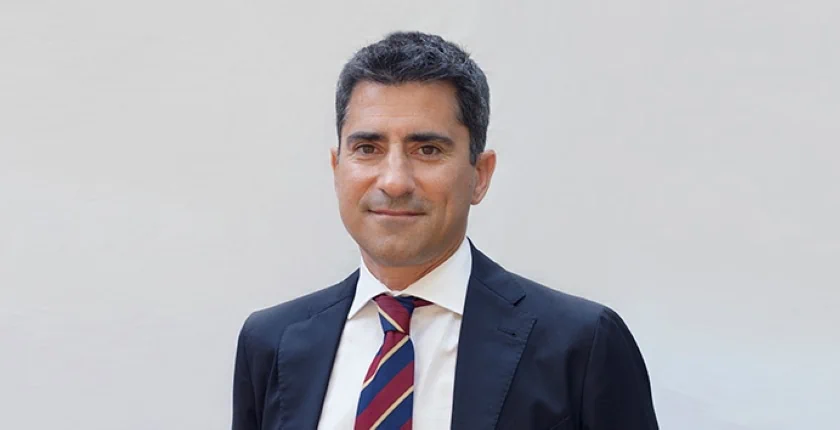Author: Matteo Colangeli, EBRD Director for Western Balkans
In recent months, several countries in the region have made significant strides towards accelerating their transition to green energy. The rollout of auctions for utility-scale renewable energy projects has been central to this.
In June, Serbia announced the start of the largest round of auctions in the region – 450 MW of wind and solar generation capacity – along with a three-year auction plan taking total capacity additions to 1,300 MW. Albania has just conducted a wind power auction, following two successful solar auctions. It has also announced a forthcoming solar PV auction of 300 MW. Kosovo has also launched its first auction for utility-scale renewables.
The urgency of accelerating the transition
These steps are critical for a region in which the energy sector is facing several pressing challenges. There has been little investment in power generation capacity since the late 1980s. The region as a whole is overwhelmingly reliant on coal. Its other main source of energy – hydropower – is increasingly vulnerable to changes in hydrology.
A number of Western Balkan countries are largely reliant on expensive power imports. The energy crisis triggered by the war on Ukraine has underlined the severity of the situation, bringing to the fore structural weaknesses in a number of countries. Moreover, European Union climate action policies represent an additional transition driver – for example, the Carbon Border Adjustment Mechanism will affect the region’s competitiveness.
The transition is starting to take hold
These features underline the rationale for rapidly shifting towards secure, clean, and integrated energy systems. Viewed in this context, the launch of auctions in the region is all the more important. And the results show what can be achieved: the first auction in Albania delivered the lowest price for solar power in the Western Balkans (2.489 euro cents per kilowatt hour).
Policy commitments need to be accompanied by business-enabling regulations
The success of this central component of the energy transition – scaling up investment in renewables – depends on a combination of factors. It is built, in the first instance, on a policy commitment: a signal to the market that the future of the power sector is renewable energy. This can take the form of renewables targets, schedules for auctions, dates for the phase-out of coal and/or long-term economy wide targets for reaching net-zero emissions. Policy commitments need to be accompanied by business-enabling regulations: a comprehensive legal and institutional framework that balances risks between the public and private sectors.
A key reform is the introduction of a framework for well-designed auctions
A key reform is the introduction of a framework for well-designed auctions. Unlike direct selection or providing administratively determined support payments, auctions lead to transparency and incentivise the private sector to deliver electricity at low prices to end users. The goal of a well-designed auction is to maximise the pool of credible bidders.
This means managing trade-offs between encouraging participation and ensuring project delivery, for example, through suitable eligibility criteria or appropriately sized bid bonds. Importantly, transparent selection criteria should be used – for example, the strike price as the sole selection criterion among pre qualified bidders. As markets mature, support mechanisms should evolve to premium schemes that ensure the market integration of renewables.
The EBRD has been targeting its support towards these areas
The EBRD has been targeting its support towards these areas, working in partnership with policymakers across the region to deliver enabling regulatory frameworks and well-designed auctions, such as the ones in Albania and Serbia. Moreover, we have further activities planned in the region – for example, support to the authorities in Montenegro on a new law on renewable energy, which will be followed by auctions for utility-scale projects. This work has been generously supported by many donors: among others, Switzerland, Luxembourg, Austria and Italy. And it has been conducted in partnership with different development partners – for example, the Energy Community Secretariat.
Looking ahead
The rapid scaling-up of renewables is just the first step towards accelerating the transition. A number of further steps will be needed. Auctions will remain an important tool. But they will also need to be complemented by other mechanisms – for example, corporate Power Purchase Agreements and distributed, small-scale renewables.
The integration of intermittent renewables is a critical challenge
Second, the integration of intermittent renewables is a critical challenge. Here, countries will need to invest in grids, strengthen regional interconnectivity, provide for the coupling of electricity markets – both within the region and with neighbouring countries – attract investment in flexibility solutions to manage balancing, and put frameworks in place to ensure investment in reserves.
Finally, but crucially, there is a need to manage the deep socio-economic changes that the energy transition will bring – particularly the effects on communities that are reliant on coal for their livelihoods.

